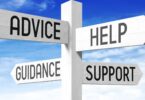I have something counter-intuitive to share with you that I think is very important to know when working towards being an AWAL (attorney with a life). Many high-achievers (myself included, until relatively recently) tend to think that the best way to accomplish things is to drive through, work really hard and throw in a good dose of self-criticism and judgment along the way. Sure that’s one approach, but we all know that there are big pitfalls in it – large potholes – such as burnout, insecurity, frayed relationships and so on. But, research shows that people who are more self-compassionate are more productive and more likely to reach their potential. And, they are feeling better about themselves and others while they are getting there. Doesn’t this sound like a much more enjoyable journey? It also sounds more like an AWAL sort of journey to me – one that is en route to deeply meaningful success.
Now, you may still think that you don’t have time to be self-compassionate – that it is too self-indulgent. You may think that if you are self-compassionate you will lose your drive to succeed. I know it’s counter-intuitive, but the research is there to show you are likely wrong. If you are here on this AWAL blog site, I bet you are willing to read on and explore this further….
Much of the research I am referring to is laid out in Self-Compassion: Stop Beating Yourself Up and Leave Insecurity Behind, by Kristin Neff.
Here’s a brief explanation of what self-compassion is, as defined by Kristin Neff. It has three-core components:
- Self-kindness – we are gentle and understanding with ourselves rather than harshly critical or judgmental
- Common humanity – we allow ourselves to feel connected with others in the experience of life rather than feeling isolated and alienated by our suffering
- Mindfulness – we hold our experience in balanced awareness, rather than ignoring our pain or exaggerating it
We must achieve and combine these three essential elements in order to be truly self-compassionate (p. 41).
In a deeply personal and very practical way, Kristin Neff walks us through these components and shows us how we can make them work for us. It is a very readable, actionable book.
Here’s one action you could take as a result of reading this post. Go on over Kristin Neff’s site and try one of her self-compassion practices. There is one called “self-compassion break” that is only 5 minutes long, for example. (Do also read her short tips for practice piece as well – I know that makes it two actions – consider this is a sub-action).
In my next post I want to show you how growth mindset, which I blogged about last month on this site, and self-compassion are connected – it is a powerful formula for deeply meaningful success! Stay tuned!







